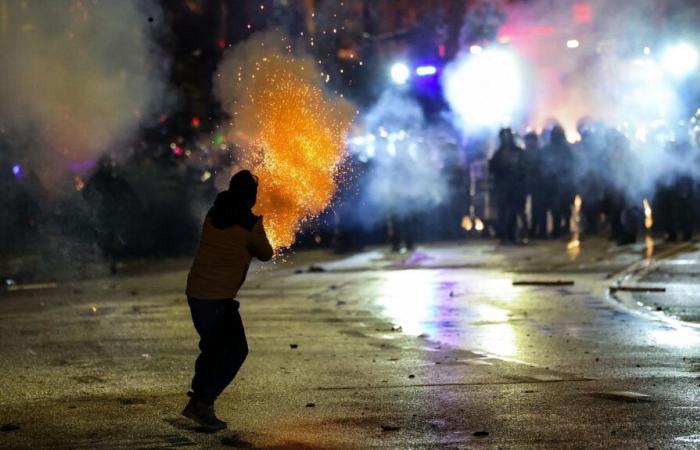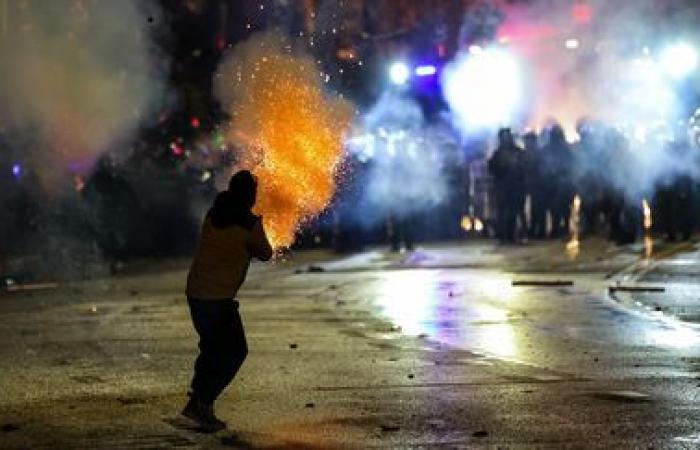Georgia experienced a fifth consecutive evening of large-scale demonstrations in the capital Tbilisi on Monday. The demonstrators denounce the government's decision to freeze the EU accession process until 2028.
Published on 03/12/2024 09:51
Updated on 03/12/2024 09:52
Reading time: 2min

The protest is taking hold in Georgia, where thousands of demonstrators once again took over the streets of the capital Tbilisi on Monday, December 2. A fifth evening of large-scale mobilization, and demonstrations which spread to other cities, and in particular to Gori, Stalin's birthplace, symbol of the Soviet past of this small country which became independent after the fall of the USSR.
An atmosphere of protest which has agitated the country since the spring, but which returned to force on Thursday November 28, when the Prime Minister, from the Georgian Dream party, (who emerged victorious from contested elections at the end of October) announced the freeze until 2028 of the European Union accession process. A decision which provoked the anger of part of the population, and these demonstrations were increasingly harshly repressed. Since last Thursday, 224 arrests have taken place, NGOs denounce violence and attacks committed by militias on demonstrators, and the police use tear gas and water cannons to disperse a crowd where European flags are flying.
Between electoral and institutional crisis, the moment resembles a turning point in this country caught between Russian influence and the population's attraction to Europe, with membership in the EU favored by around 80% of the population. . A reality with which the government must come to terms, even if in recent months it has adopted an increasingly accommodating line with Moscow, voting last spring for a law on “foreign influence”, modeled on a Russian law, to bring not civil society. Its adoption led Brussels to freeze negotiations on membership, even though the country had obtained the status of “candidate country” in December 2023.
Since then, the Georgian government seems to be doing everything to stop the rapprochement, even if Prime Minister Irakli Kobakhidze denies it, and says he wants “deploy maximum efforts in the European integration process“. A curious argument after having stated the opposite five days earlier, and when the objective of integration is enshrined in the country's Constitution.
“The door to Europe remains open” said German diplomacy on Monday, December 2, while the Baltic countries (Lithuania, Latvia, Estonia) announced the first sanctions against Georgian political figures.








